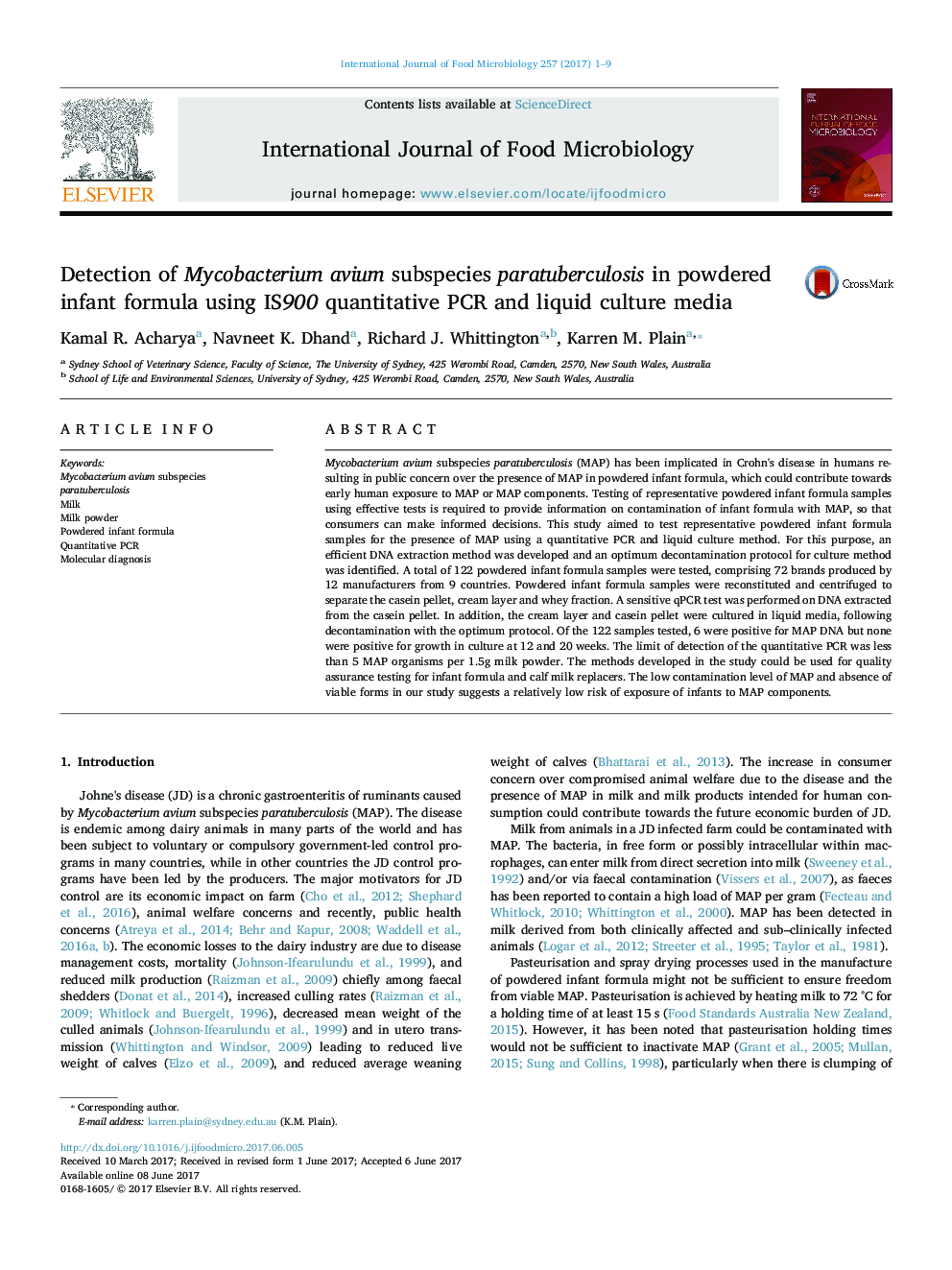| Article ID | Journal | Published Year | Pages | File Type |
|---|---|---|---|---|
| 5740650 | International Journal of Food Microbiology | 2017 | 9 Pages |
Mycobacterium avium subspecies paratuberculosis (MAP) has been implicated in Crohn's disease in humans resulting in public concern over the presence of MAP in powdered infant formula, which could contribute towards early human exposure to MAP or MAP components. Testing of representative powdered infant formula samples using effective tests is required to provide information on contamination of infant formula with MAP, so that consumers can make informed decisions. This study aimed to test representative powdered infant formula samples for the presence of MAP using a quantitative PCR and liquid culture method. For this purpose, an efficient DNA extraction method was developed and an optimum decontamination protocol for culture method was identified. A total of 122 powdered infant formula samples were tested, comprising 72 brands produced by 12 manufacturers from 9 countries. Powdered infant formula samples were reconstituted and centrifuged to separate the casein pellet, cream layer and whey fraction. A sensitive qPCR test was performed on DNA extracted from the casein pellet. In addition, the cream layer and casein pellet were cultured in liquid media, following decontamination with the optimum protocol. Of the 122 samples tested, 6 were positive for MAP DNA but none were positive for growth in culture at 12 and 20 weeks. The limit of detection of the quantitative PCR was less than 5 MAP organisms per 1.5g milk powder. The methods developed in the study could be used for quality assurance testing for infant formula and calf milk replacers. The low contamination level of MAP and absence of viable forms in our study suggests a relatively low risk of exposure of infants to MAP components.
